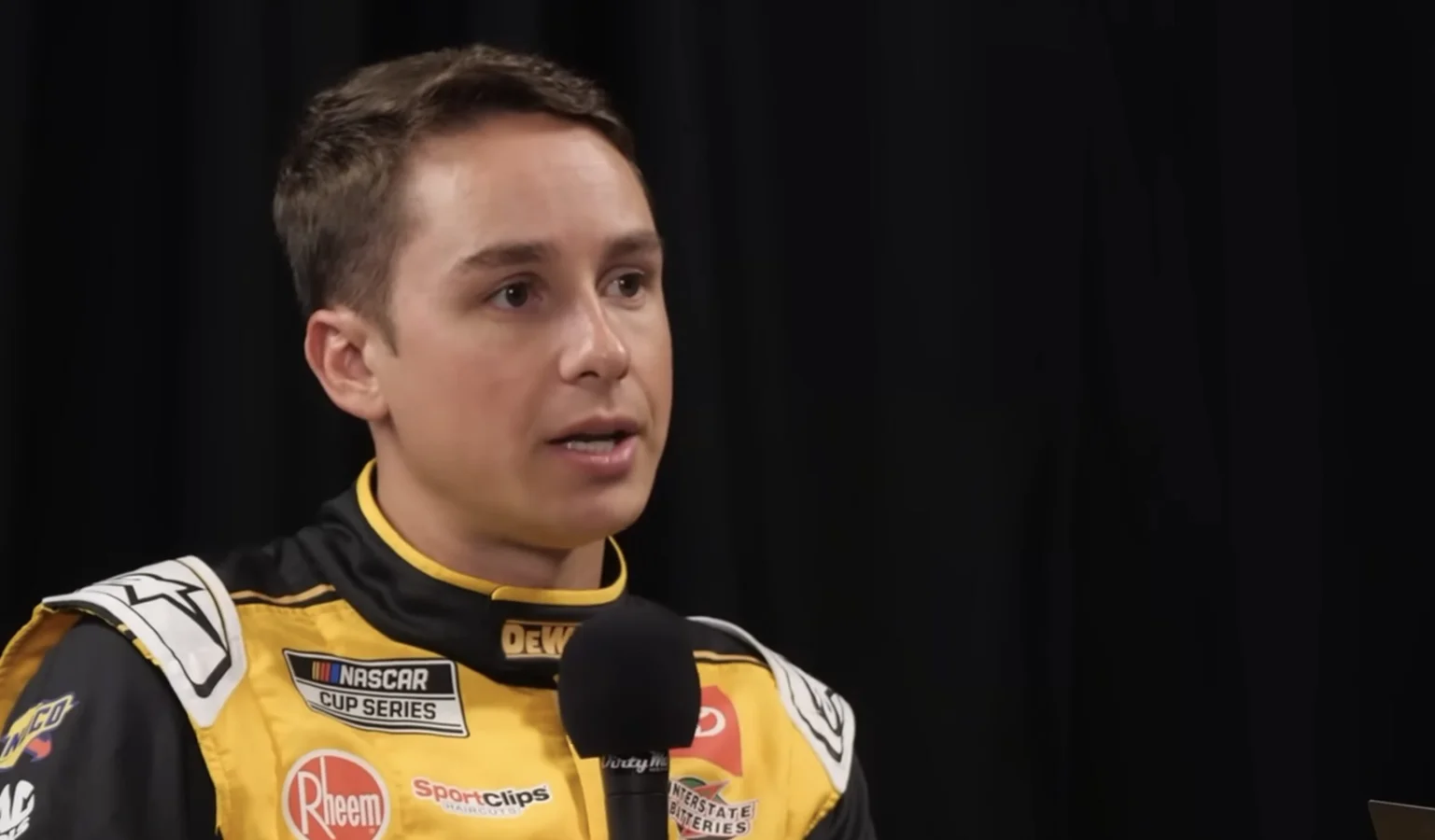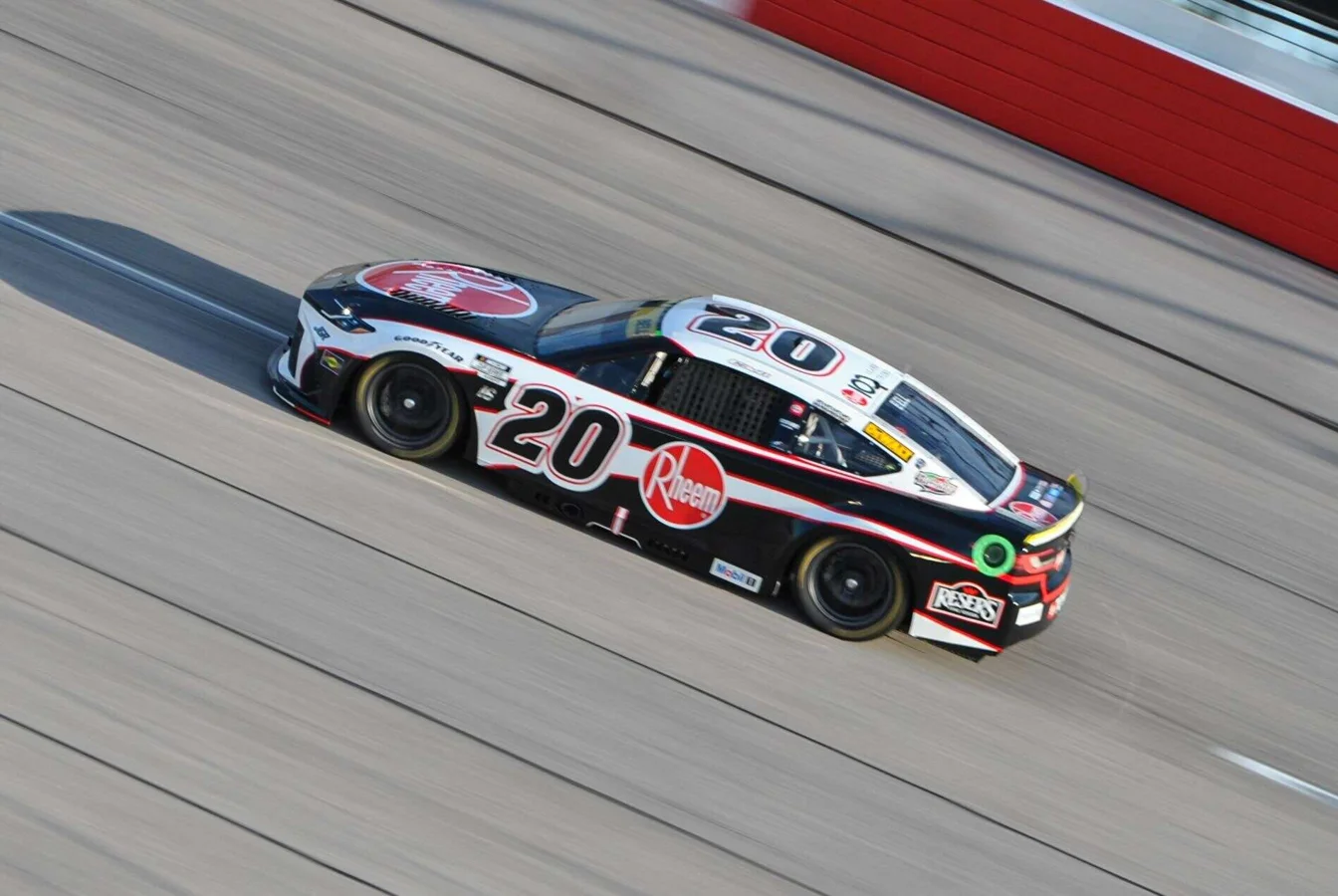The Christopher Bell Darlington pit road incident generated significant controversy following the NASCAR Cup Series playoff opener on Sunday at Darlington Raceway, as drivers and analysts debated who was at fault after a pit lane collision involving Bell and Carson Hocevar. Bell, left frustrated by the events, voiced his concerns about Hocevar and his team, while Kevin Harvick offered a different perspective on the situation.
Details Emerge from the Darlington Playoff Race
During a critical pit stop on Lap 154, Christopher Bell and Carson Hocevar made contact as Bell attempted to exit his pit box. Hocevar, driving for Spire Motorsports, spun around, coming to rest backwards in his own stall. The incident resulted in considerable damage to Bell’s splitter, limiting his performance for the remainder of the race and leading to a 29th place finish.
Kevin Harvick, NASCAR veteran and commentator, weighed in on the controversy, stating his belief that Hocevar was not at fault. Harvick highlighted the responsibilities of the No. 20 team to ensure Bell could safely rejoin the track after a pit stop, and pointed to the role of both the crew chief and spotter in guiding their driver out of the pit box. He noted that Hocevar concluded the race in ninth place, reinforcing that the driver had every reason to be competing aggressively.

Bell was really frustrated after the race. He felt like Hocevar didn’t have anything to race for, but I will tell you that Hocevar finished ninth. So, when you look at these scenarios, the crew chief on top of the pit box or the spotter is responsible for helping the driver get out of the pit box,
—Kevin Harvick, NASCAR commentator
Harvick further explained that drivers are responsible for knowing their surroundings and for using their mirrors effectively during pit stops. He suggested that the situation could have been avoided if more attention had been given to the conditions around Bell as he left his pit stall.
So, I don’t think Hocevar did anything wrong. I think the call out of the pit box was probably aggressive. Bell just pulled right out of there like nobody was coming and with the way that the mirrors and everything work, you can use them to be able to get out of your pit box and pay attention. I think that is unfortunate for Bell, but I think some of that responsibility ultimately falls on them.
—Kevin Harvick, NASCAR commentator
Christopher Bell’s Perspective on the Incident
Christopher Bell had a sharply different interpretation of the events at Darlington. In Bell’s view, Hocevar, as a non-playoff driver, should have yielded and allowed the playoff contenders greater space. Bell expressed his frustration with both Hocevar’s actions and Spire Motorsports, feeling that they failed to recognize the unique circumstances of the moment.
Bell explained that his principal concern stemmed from the fact that Hocevar had already spun out, causing the caution, and was not in a competitive position to gain track position on pit road. Bell maintained that it was especially aggravating that Hocevar did not yield, contributing to the contact and his subsequent challenges in the race.
Honestly, I don’t really give blame to Carson. I think it’s more on his team to not let him know the circumstances that he’s pitted on an island with all the playoff cars. He just spun, brought out the yellow. He’s not going to gain a spot on pit road. And he didn’t give way and ruined my night. So, it’s a bummer.
—Christopher Bell, NASCAR driver
Since his win at the All-Star Race earlier this year, Bell has faced several issues throughout the season. His result at Darlington, placing him 29th, amplified an ongoing series of difficult races. As a result, Bell now sits 10th in the standings, with only 11 points separating him from elimination in the playoffs.
Looking Ahead After Controversial Darlington Clash
The fallout from the Christopher Bell Darlington pit road incident spotlights the tense atmosphere within the NASCAR Cup Series playoffs, as both playoff and non-playoff drivers vie for position and every decision on pit road can change the course of a race. The differing opinions from Bell and Harvick underscore how high emotions and split-second calls shape outcomes during these critical moments of the season.
With Bell’s position near the playoff cutline, the pressure rises for him and his team as the postseason continues. How teams and drivers manage pit road dynamics and communicate strategy will remain under scrutiny, particularly as the stakes climb in the race for the championship. All eyes now turn to the next race, where the lessons from Darlington may influence pit decisions and on-track encounters going forward.
